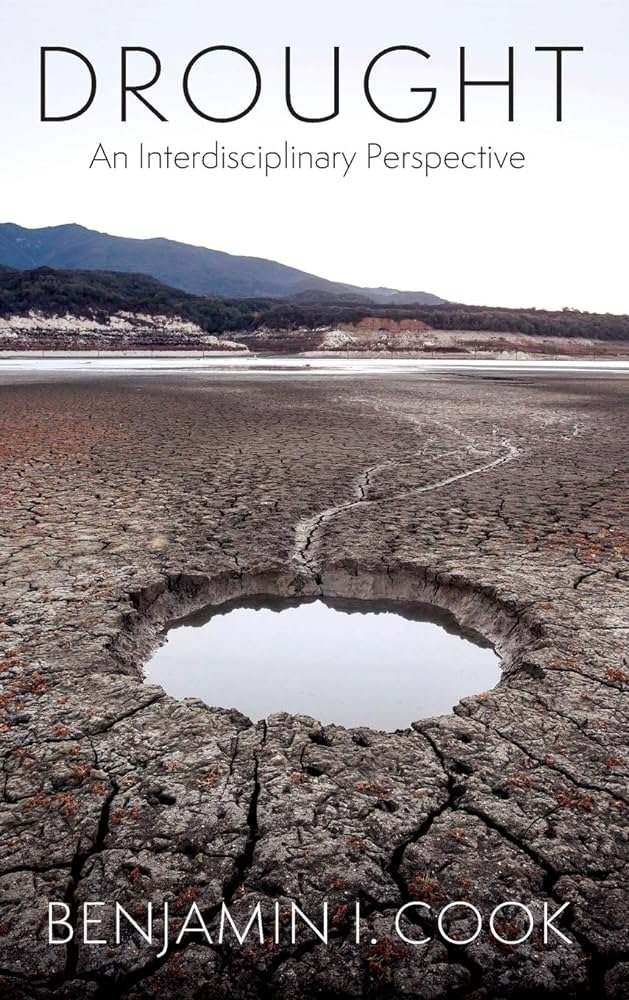Textbook
Drought: An Interdisciplinary Perspective
Columbia University Press, 2019
Water is fundamental to all life. From the Dust Bowl of the 1930s, to the extreme water shortages that have struck California in recent years, modern societies often take its abundance for granted until it unexpectedly becomes scarce. Drought is one of the many problems anthropogenic climate change may exacerbate, but it is also a complex phenomenon at the intersection of a range of scientific disciplines and public policy issues. In this innovative book, Benjamin I. Cook brings together climate science, hydrology, and ecology to provide a synthetic overview of drought and its environmental and social consequences.
Cook introduces readers to the hydroclimate and its components, explaining the global water cycle, the earth’s climate system, and the distribution of water resources. He discusses drought dynamics and variability over time, the climatological context and ecological effects, and environmental issues such as desertification, land degradation, and groundwater depletion. He also considers the socioeconomic impacts of drought and the role of drought risk management policy, especially in light of how climate change is expected to affect drought risk and severity. Cook gives special attention to paleoclimate and the role of drought in the crises of ancient civilizations. A scientifically comprehensive and approachable overview of water issues throughout the world, Drought is a critical interdisciplinary text that will be essential reading for a broad range of students in earth science and environmental and sustainability studies.
Class
Sustainability Management PS230: The Earth’s Climate System
Ongoing course at Columbia University, Sustainability Management program
This class provides a broad, quantitative introduction to the science underlying our understanding of the Earth’s climate system. Students will first learn the basic, fundamental concepts of energy transfer, the greenhouse effect, and general circulation in the climate system. We will then build on these ideas to explore more specialized topics, including climate variability now and in the past, the signs of climate change, climate models, extreme events, and projections of future climate. Lectures and slides will draw from the scientific literature, as well as the latest IPCC Assessment Report (AR6). By the end, students will have a working knowledge of the climate system, giving them the knowledge and skills to evaluate statements and claims in the media and from their peers. Limited math (basic algebra) will be necessary for some of the assignments.
Graphic: Moss et al, 2010

